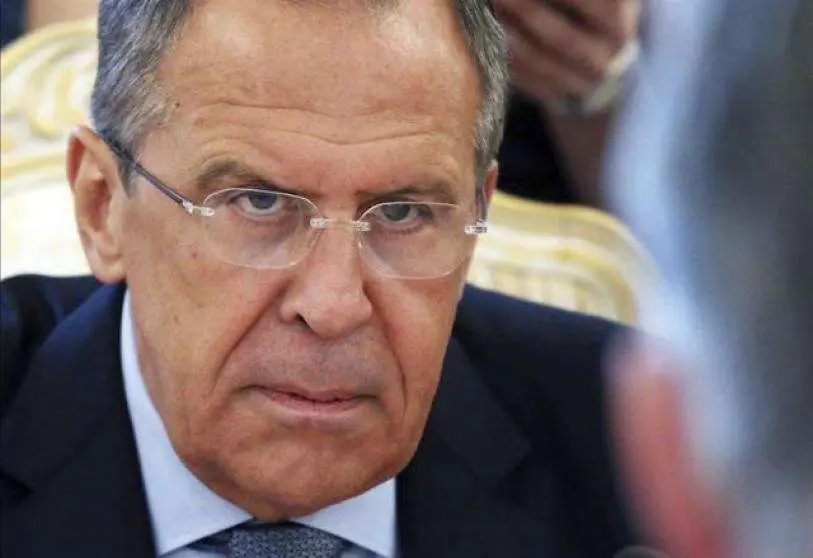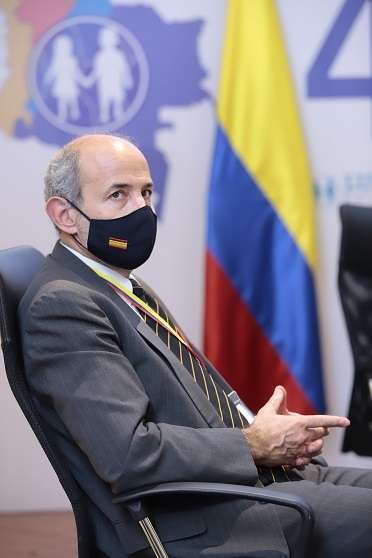Russia expels 85 European diplomats from the country, 27 of them Spanish

It has been a busy Wednesday morning at the Russian Foreign Ministry. At least three European ambassadors were paraded through the corridors of the Moscow building to receive bad news: the Kremlin had taken the decision to evict a large number of their respective diplomatic staff deployed in Russia in response to the mass expulsion of Russian diplomats based in several EU member states. The announcement was a matter of time.
Up to 85 European diplomats will have to pack their bags and leave the Slavic country in the coming days, including 27 Spaniards, 24 Italians and 17 French. The Foreign Ministry, headed by the veteran Sergey Lavrov, is thus responding to the forced return of 41 Russian citizens in April, expelled from the various Russian embassies and consulates in Europe for security reasons as a result of the invasion of Ukraine ordered by Vladimir Putin on 24 February.
The first to speak out on the matter was Italian Prime Minister Mario Draghi, who described the gesture as a "hostile" action that should not harm diplomatic channels with Moscow. "It is through these channels that, if we succeed, peace will be achieved, and that is certainly what we want", remarked a conciliatory Draghi on the same day that it became known that the transalpine oil company Eni, privately owned but acting in collusion with the government, will pay for the supply of Russian gas in roubles, as demanded by Moscow, destabilising the EU's common strategy.
The expulsions, perhaps the biggest diplomatic clash between Moscow and Western Europe since the Cold War, has left Spain as one of the biggest losers. This morning, Ambassador Marcos Gómez Martínez was summoned by the authorities to the Russian Foreign Ministry. Once there, Spain's top representative in Russia received a list of the 27 names of diplomatic personnel who were obliged to leave the country in the coming days.
The measure, taken in reciprocity to the expulsion of 27 employees of the Russian Embassy in Madrid on 5 April following the revelation of the Bucha massacre, affects several members of the Moscow Embassy and the Consulate General in St Petersburg, but 'a priori' not the ambassador, and also brings with it the label of 'persona non grata' for all those expelled. Once the notification has been received, they will have seven days to leave.

The head of Spanish diplomacy, José Manuel Albares, has acknowledged that the government expected the decision, but the Foreign Ministry has been quick to reject the action, arguing that the reasons behind the expulsion of Russian diplomats are not comparable to those put forward by Moscow. "The expulsion decided at the time by the Spanish authorities was based on duly justified security reasons, which are not present in this case," argued the foreign ministry, which suspected espionage activities.
The head of the Russian embassy in Spain, Yuri P. Korchagin, and his counsellor Dimitri Sokolov kept their posts with the aim of leaving open a direct channel of communication between the Russian authorities and the Spanish government. But the expulsion affected 27 members of the legation.
"The work of the staff of the Spanish Embassy to the Russian Federation, whose professionalism this Ministry wishes to highlight, has always fully respected the obligations laid down in the Vienna Convention on Diplomatic Relations and the Vienna Convention on Consular Relations", states the statement issued by the Ministry of Foreign Affairs, European Union and Cooperation.
Spain has not been the first and will not be the last. Ambassador Marcos Gómez Martínez's visit to the Russian Foreign Ministry was preceded by two other visits, those of the Italian Ambassador, Giorgio Starace, and the French Ambassador, Pierre Levy. Rome had expelled some 30 Russian representatives in the days when the massacre perpetrated by Russian soldiers in Bucha, the small town near Kiev, became known.
Paris followed suit at the same time, evicting 35 Russians with diplomatic status. These three countries, however, have not been the only ones to be retaliated against by Moscow. On Tuesday it was Finland's turn, just a week before the Nordic country, together with Sweden, submitted its formal application for NATO membership. And weeks earlier it was Belgium and the Netherlands that lost 12 and 15 members of their respective diplomatic missions in Russia.








